Introduction
How To Get Rid Of Pigeons Naturally: Pigeons, often considered as charming urban birds, can quickly become a nuisance when they decide to take up residence in your home or on your property. Their droppings can be unsightly and unsanitary, and their cooing can disrupt the peace and quiet you crave. While there are various methods to deal with pigeon infestations, many people are seeking natural and humane solutions to deter these feathered intruders.
The effective and eco-friendly methods on how to get rid of pigeons naturally. These approaches are not only kinder to the birds but also gentler on the environment, ensuring that your home remains pigeon-free without resorting to harmful chemicals or inhumane traps. Whether you’re dealing with a small flock or a persistent pair of pigeons, we’ll provide you with practical, sustainable, and ethical strategies to restore the tranquility of your living space.
Pigeons, often considered as charming urban birds, can quickly become a nuisance when they decide to take up residence in your home or on your property. Their droppings can be unsightly and unsanitary, and their cooing can disrupt the peace and quiet you crave. While there are various methods to deal with pigeon infestations, many people are seeking natural and humane solutions to deter these feathered intruders.
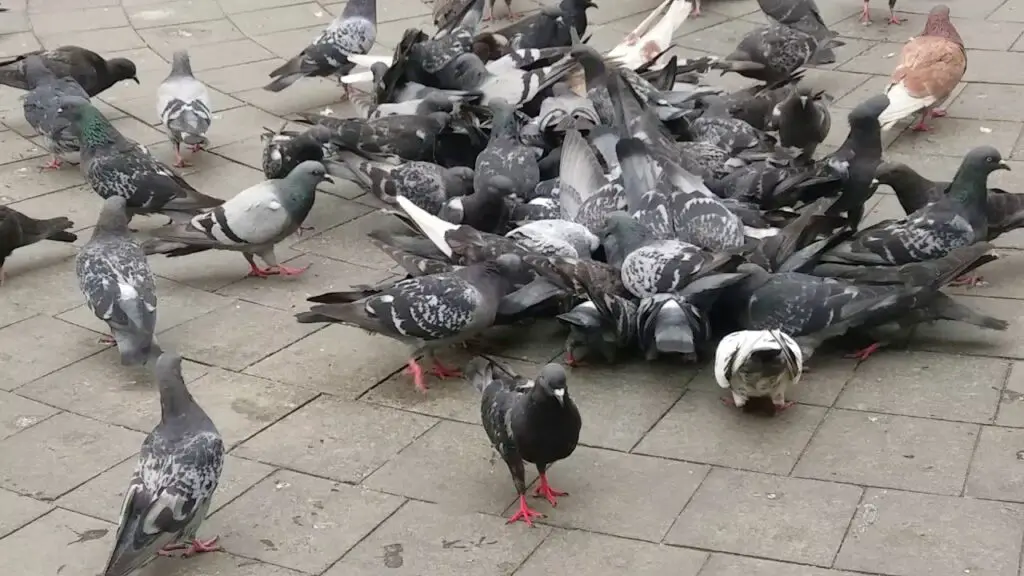
How do I permanently get rid of pigeons?
There are several methods that are proven to be effective – bird gel, electric and visual deterrents, bird wires and spikes, sonic and ultrasonic deterrents, bird netting, bird hazers, and the most humane option – bird birth control.
Remove Food Sources: Pigeons are drawn to places where they can easily find food. Ensure that all food scraps, bird feeders, and uncovered garbage bins are properly sealed and inaccessible to them. By eliminating their food source, you discourage their presence.
Deterrents: Implement various natural and humane deterrents such as bird spikes, netting, and visual scare tactics like reflective objects. These physical barriers make roosting and nesting areas less attractive for pigeons.
Modify Habitat: Make your property less inviting to pigeons by sealing off potential nesting sites, like gaps in roofs or attics. Trim trees and vegetation to reduce perching opportunities. Consider installing sloping surfaces to prevent roosting.
Ultrasonic Devices: Ultrasonic bird repellent devices emit high-frequency sounds that are unpleasant to pigeons and can deter them from settling in the area.
Repellent Gels and Sprays: Non-toxic pigeon repellent gels or sprays can be applied to roosting surfaces to create an unpleasant and sticky texture that discourages pigeons from landing.
Professional Assistance: If your pigeon problem is severe or persistent, consider seeking professional help from pest control experts who specialize in humane bird control methods.
What smell do pigeons hate?
Pigeons dislike strong smells, like cinnamon and hot pepper. To deter pigeons from entering your garden, use cinnamon or peppermint essential oil or cayenne pepper mixed into a spray bottle of water. Spray the mixture anywhere you’ve noticed pigeon activity.
Peppermint: Pigeons find the smell of peppermint to be unpleasant. You can use peppermint oil or soaked cotton balls with peppermint extract and strategically place them in areas where pigeons tend to roost or nest.
Cinnamon: The strong aroma of cinnamon is another scent that pigeons dislike. You can use powdered cinnamon or cinnamon essential oil in areas where you want to deter them.
Citrus: Pigeons often dislike the smell of citrus fruits like oranges, lemons, and grapefruits. Placing citrus peels or using citrus-scented sprays can help keep them away.
Vinegar: The pungent odor of vinegar is a natural pigeon repellent. Mix vinegar with water and spray it on surfaces where pigeons gather or roost.
Chili Pepper: Capsaicin, the compound responsible for the heat in chili peppers, is unpleasant to pigeons. Sprinkle crushed red pepper flakes in areas where pigeons are a problem.
Herbs: Herbs like rosemary, thyme, and oregano can produce scents that pigeons find disagreeable. Planting these herbs or using their essential oils can be effective in deterring pigeons.
How do you get rid of pigeons without hurting them naturally?
- Netting. The use of bird netting is a good option, particularly for balconies and areas that are hard to reach.
- Bird spikes.
- Wind chime.
- Bird repellent gel.
- Use reflective surfaces.
- Ultrasonic bird repeller.
- Seal off your attic.
- Use chimney caps.
Deterrents: Implement physical deterrents like bird spikes, netting, or wire mesh to make roosting and nesting sites less appealing for pigeons. These materials create uncomfortable surfaces without causing any harm.
Reflective Objects: Pigeons are often scared away by shiny and reflective objects. Hanging CDs, aluminum foil strips, or reflective tape near their roosting spots can disrupt their comfort and drive them away.
Ultrasonic Devices: Ultrasonic bird repellent devices emit high-frequency sounds that are unpleasant to pigeons but are typically inaudible to humans. These devices discourage pigeons from settling in the area.
Natural Scents: Pigeons dislike certain scents, such as peppermint, cinnamon, and citrus. Using essential oils, soaked cotton balls, or citrus peels in affected areas can deter pigeons naturally.
Habitat Modification: Seal off potential nesting sites, like gaps in roofs or attics, to prevent pigeons from finding shelter. Trimming trees and vegetation reduces perching opportunities.
Professional Assistance: If the pigeon problem persists, consider seeking help from pest control experts experienced in humane bird control methods, such as trapping and relocation.
What are pigeons afraid of?
Pigeons hate the sight or presence of other domineering birds, such as birds of prey. This is what makes falconry such a successful deterrent in getting rid of pigeon populations. Pigeons do not like strong smells, such as cinnamon or hot pepper juice or spray.
Predators: Pigeons are naturally wary of predators like hawks, eagles, and owls. Using decoy models or installing fake predatory bird silhouettes in problem areas can make pigeons feel vulnerable and discourage them from roosting or nesting.
Sudden Movements and Noises: Pigeons are skittish and can be frightened by sudden movements or loud noises. Motion-activated devices that emit sounds or movement, like clapping hands or wind chimes, can startle pigeons and deter them from a particular location.
Visual Deterrents: Pigeons are known to dislike reflective surfaces and bright, flashing lights. Hanging reflective objects like CDs, aluminum foil strips, or shiny balloons in problem areas can disrupt their comfort and drive them away.
Unfamiliar Objects: Pigeons are cautious about unfamiliar objects in their territory. Placing unfamiliar items, such as plastic owls or scarecrows, can make them uncomfortable and discourage roosting or nesting.
Strong Scents: Pigeons have a keen sense of smell and dislike certain odors. Scents like peppermint, cinnamon, and citrus are known pigeon repellents. Using essential oils or natural scents in affected areas can deter pigeons naturally.
What spices do pigeons hate?
Pigeons do not like strong spices, such as black pepper, chilli, or cinnamon. Make spice bags or spread a generous amount of these spices around popular pigeon nesting areas to keep them away. However, you will need to replace the spices on a regular basis for them to remain effective.
Peppermint: The strong and minty aroma of peppermint is often unpleasant for pigeons. You can use peppermint oil or soaked cotton balls with peppermint extract and place them in areas where pigeons roost or nest.
Cinnamon: Pigeons typically find the scent of cinnamon to be disagreeable. Sprinkling powdered cinnamon or using cinnamon essential oil in problem areas can help deter pigeons.
Citrus: Pigeons often dislike the strong, acidic smell of citrus fruits like oranges, lemons, and grapefruits. Placing citrus peels or using citrus-scented sprays can help keep pigeons away.
Chili Pepper: Capsaicin, the compound responsible for the heat in chili peppers, can be unpleasant for pigeons. Sprinkling crushed red pepper flakes in areas where pigeons gather can be an effective deterrent.
Herbs: Certain herbs like rosemary, thyme, and oregano produce scents that pigeons find unappealing. Planting these herbs or using their essential oils in your garden can help discourage pigeons from roosting.
What can I put on my balcony to keep birds away?
Strips of shiny wrapping paper blowing in the wind, old CDs, hanging from strings and colorful spinning pinwheels are some easy and economical options. It is even more effective if the visual deterrents employed are moved or changed regularly.
Bird Spikes: Bird spikes are plastic or metal strips with pointed ends that you can attach to flat surfaces like railings and ledges. They make it uncomfortable for birds to land and roost on your balcony.
Bird Netting: Install bird netting to cover your balcony area. This creates a physical barrier that prevents birds from entering or perching on your balcony.
Wind Chimes: Hanging wind chimes can create noise and movement that deter birds. The sound and motion can make your balcony less appealing to them.
Reflective Objects: Birds are often frightened by reflective surfaces. Hanging objects like CDs, aluminum foil strips, or reflective tape can disrupt their comfort and drive them away.
Visual Deterrents: Scarecrows, plastic owls, or predatory bird silhouettes can mimic the presence of predators and discourage birds from approaching your balcony.
Decoys: Some realistic-looking bird decoys, such as owls or hawks, can also be effective in deterring smaller birds from your balcony.
Ultrasonic Devices: Ultrasonic bird repellent devices emit high-frequency sounds that are unpleasant to birds but generally inaudible to humans. These devices can discourage birds from your balcony.
Natural Scents: Pigeons and some other birds dislike certain scents like peppermint, cinnamon, and citrus. Using essential oils or scented sachets in problem areas can help deter birds naturally.
Does vinegar stop pigeons?
Vinegar is natural and effective in repelling birds. You can spray pure vinegar on selected areas where you see nests. Apple cider vinegar is the most effective, but you can use any kind of vinegar if you don’t have this one.
Scent Repellent: Pigeons have a keen sense of smell, and they find the pungent odor of vinegar unpleasant. By mixing vinegar with water and spraying it on surfaces where pigeons gather or roost, you create an environment that pigeons may find unwelcoming.
Sticky Surface: Vinegar also creates a sticky surface when applied to roosting spots. Pigeons dislike the texture and discomfort of landing on sticky surfaces, which can deter them from using that area.
Vinegar can be a useful element in your pigeon control strategy, it may not be a standalone solution. Pigeons are intelligent birds, and they can adapt to certain deterrents over time. To increase the effectiveness of vinegar as a pigeon repellent, consider using it in combination with other methods such as bird spikes, netting, or reflective objects.
What are the enemies of a pigeon?
Pigeons do not have natural defense mechanisms to protect against predators. Their ability to fly is the only thing between them and predators on land which includes opossums and raccoons. However, pigeons are often captured by predatory birds such as Peregrine Falcons, Red-tailed Hawks, and the Easter Screech Owls.
Birds of Prey: Raptors such as hawks, eagles, and falcons are formidable predators for pigeons. These birds have keen eyesight and powerful talons, making pigeons easy prey when caught in their sights.
Domestic and Feral Cats: Cats, both domestic and feral, are opportunistic hunters that pose a significant threat to pigeons. They use stealth and agility to stalk and capture pigeons.
Snakes: Some snake species, particularly larger constrictors like rat snakes or gopher snakes, can prey on pigeons when the opportunity arises.
Owls: Nocturnal birds of prey like owls are skilled hunters, and they can catch pigeons under the cover of darkness when pigeons are roosting or nesting.
Humans: While not natural predators in the ecological sense, humans can pose a threat to pigeons through habitat destruction, hunting, or pest control measures.
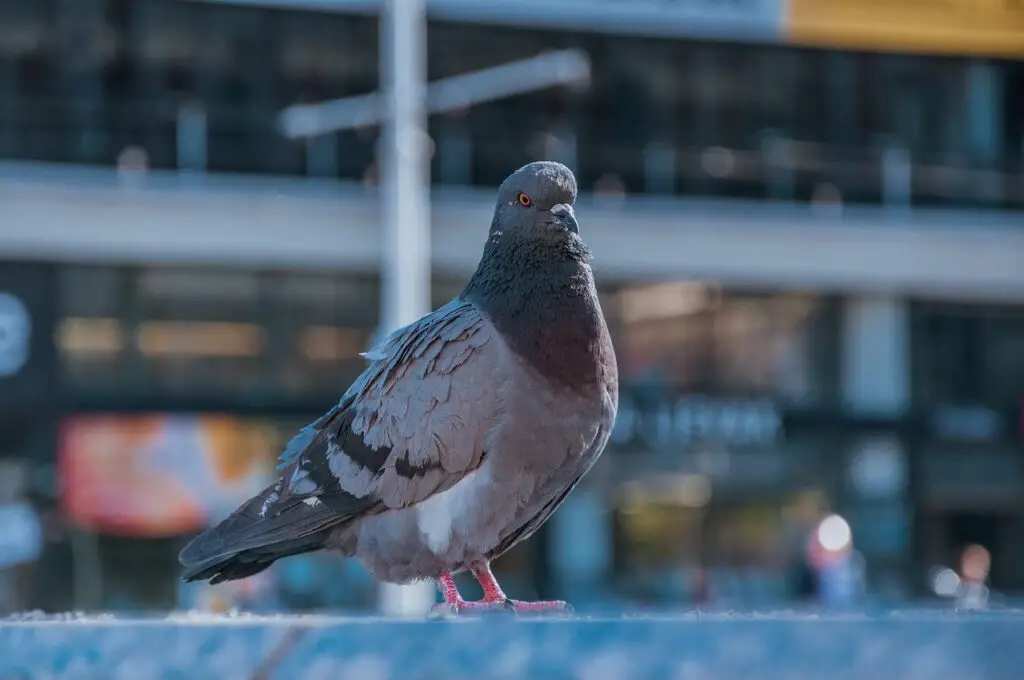
Conclusion
Get rid of pigeons naturally can be both effective and environmentally responsible. By implementing the strategies and techniques discussed in this guide, you can create a pigeon-free environment without resorting to harmful chemicals or inhumane methods. From simple deterrents like reflective surfaces and natural scents to more involved efforts such as habitat modification and providing alternative nesting sites, you have a range of options to choose from.
These approaches not only help you regain control of your property but also promote a harmonious coexistence with these urban birds. It’s essential to remember that pigeons, like all creatures, have a place in our ecosystem, and by adopting humane and eco-friendly pigeon control methods, you contribute to a healthier and more sustainable environment for all. So, as you embark on your journey to deter pigeons naturally, do so with the understanding that balance and compassion can lead to a more peaceful life.
The practical benefits of natural pigeon control methods, it’s worth considering the broader impact of your choices. By opting for eco-friendly solutions, you not only protect the well-being of pigeons but also contribute to a cleaner, greener, and more sustainable world. Traditional pigeon control methods involving toxins or traps can have unintended consequences for other wildlife, pets, and even humans, as they can lead to the spread of harmful substances.

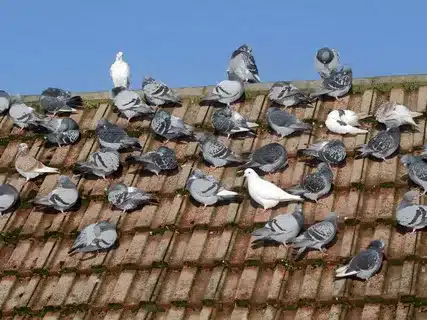
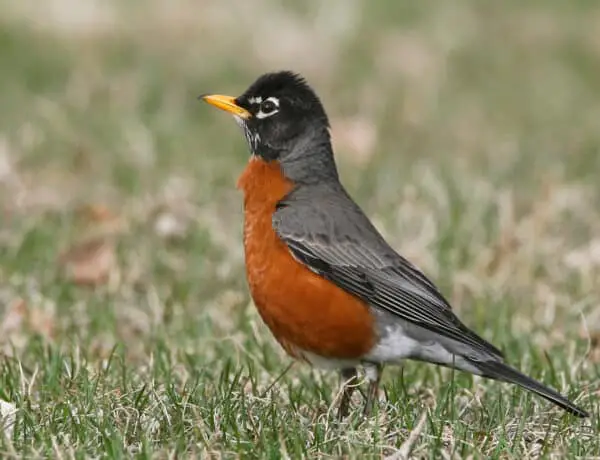
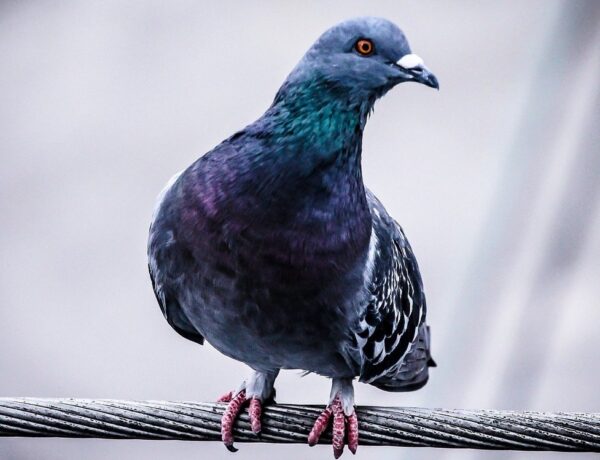
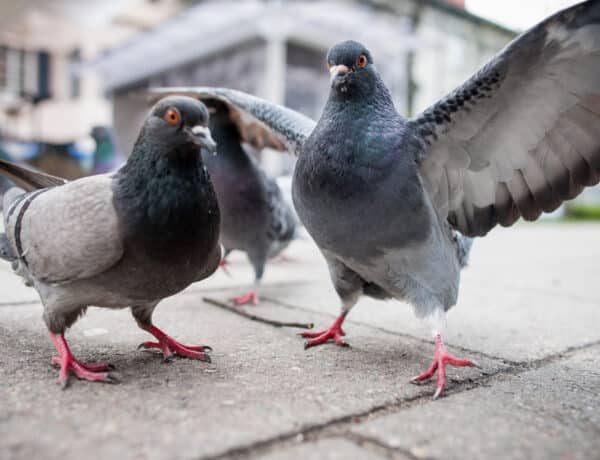
No Comments